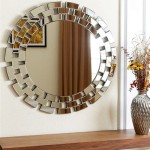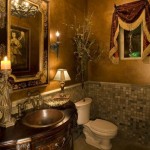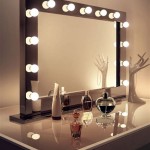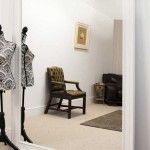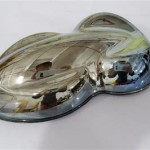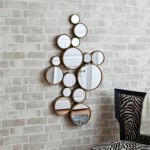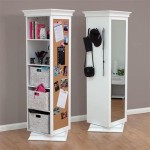Baroque Vanity Mirrors: A Reflection of Opulence and Artistry
Baroque vanity mirrors represent a unique intersection of functionality and artistic expression. Originating during the Baroque period (roughly 1600-1750), these mirrors served a practical purpose while simultaneously showcasing the era's penchant for elaborate ornamentation and dramatic flair.
The Baroque period was characterized by grandeur, extravagance, and a rejection of the Renaissance's pursuit of simplicity. This aesthetic manifested in architecture, art, music, and even everyday objects like furniture and mirrors. Baroque vanity mirrors, therefore, became more than just reflective surfaces; they transformed into decorative statements reflecting the owner's wealth and taste.
Materials used in crafting Baroque vanity mirrors typically included high-quality glass, often imported from Venice, renowned for its glassmaking expertise. The frames were frequently constructed from wood, a readily available and easily carved material. Walnut, oak, and gilded wood were popular choices, lending an air of richness and sophistication. Metals such as bronze and brass also found their way into these ornate creations, adding gleaming accents and further enhancing the luxurious aesthetic.
The defining characteristic of Baroque vanity mirrors lies in their elaborate ornamentation. Intricate carvings often adorned the frames, depicting scrolling acanthus leaves, cherubs, mythical creatures, and other motifs inspired by classical mythology and nature. Gilding, a technique involving the application of thin gold leaf, was frequently employed to heighten the sense of opulence and create a dazzling, light-catching effect.
The shape of the mirror itself also contributed to the overall Baroque aesthetic. Oval and rectangular shapes were common, often topped with a decorative pediment or crown. These architectural elements further emphasized the grandeur and formality associated with the Baroque style. Some mirrors also featured beveled edges on the glass, adding another layer of visual interest and reflecting light in intricate patterns.
Beyond their decorative function, Baroque vanity mirrors served a practical purpose. In an era predating modern lighting, mirrors played a crucial role in illuminating rooms by reflecting candlelight and maximizing available natural light. Their placement in bedrooms and dressing rooms provided individuals with the means to groom and adorn themselves, a ritual that held significant social importance during this period.
The size and scale of Baroque vanity mirrors varied depending on their intended location and the owner's affluence. Larger mirrors, sometimes reaching impressive heights, were often displayed in grand reception rooms as symbols of wealth and status. Smaller, more portable vanity mirrors were designed for personal use and could be easily moved around as needed.
The craftsmanship involved in creating these intricate pieces was highly valued. Skilled artisans dedicated countless hours to carving, gilding, and assembling each mirror, ensuring the highest level of detail and quality. This meticulous attention to detail is evident in the surviving examples of Baroque vanity mirrors, which continue to be admired for their artistic merit and historical significance.
Collecting Baroque vanity mirrors remains a popular pursuit among antique enthusiasts and interior decorators. These mirrors offer a glimpse into a bygone era of extravagance and artistic mastery. Their presence in a contemporary setting can add a touch of old-world charm and sophistication, serving as a focal point while also reflecting the owner's appreciation for history and beauty.
Authentic Baroque vanity mirrors can be found in antique shops, auction houses, and specialized dealers. Reproductions and mirrors inspired by the Baroque style are also available, offering a more accessible option for those seeking to incorporate this opulent aesthetic into their homes.
When evaluating a Baroque vanity mirror, several factors should be considered. The quality of the materials, the intricacy of the carving, and the overall condition of the piece are all important indicators of its value and authenticity. The presence of original gilding and glass further enhances the desirability of the mirror.
Caring for a Baroque vanity mirror requires careful attention. Dusting with a soft cloth and avoiding harsh cleaning chemicals is essential for preserving the delicate finish. Professional restoration may be necessary for damaged or deteriorated pieces to ensure their longevity and maintain their historical integrity.
Baroque vanity mirrors represent more than just reflective surfaces; they embody the spirit of an era defined by artistic innovation and lavish display. Their enduring appeal lies in their ability to transport us back in time, offering a glimpse into a world where beauty and opulence reigned supreme.

Royal White Gold Dressing Table Set Exclusive Baroque Style Dresser Teak Wood Carved Console

Buy Shabby Chic Wall Mirrorantique Baroque Style Double Vanity In

Buy Antique Baroque Mirror Vintage Elegant In

Buy Baroque Mirror Vintage Style Oval In

Pin On Bathrooms

Buy Lobby Mirror Entryway Gold Baroque In

French Baroque Mirror With Smoked Makeup Vanity Bathroom

Baroque Style Dressing Table With Carvings And Inlays Idfdesign

19th Century French Baroque Giltwood Wall Vanity Mirror Chairish

Gold Baroque Bathroom Mirror Design Ideas

